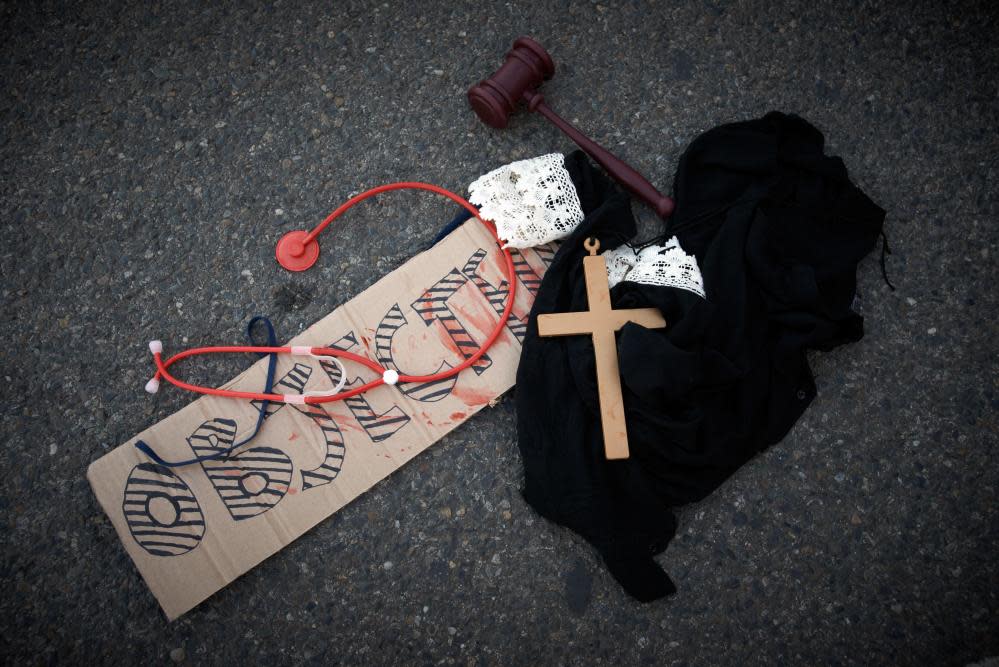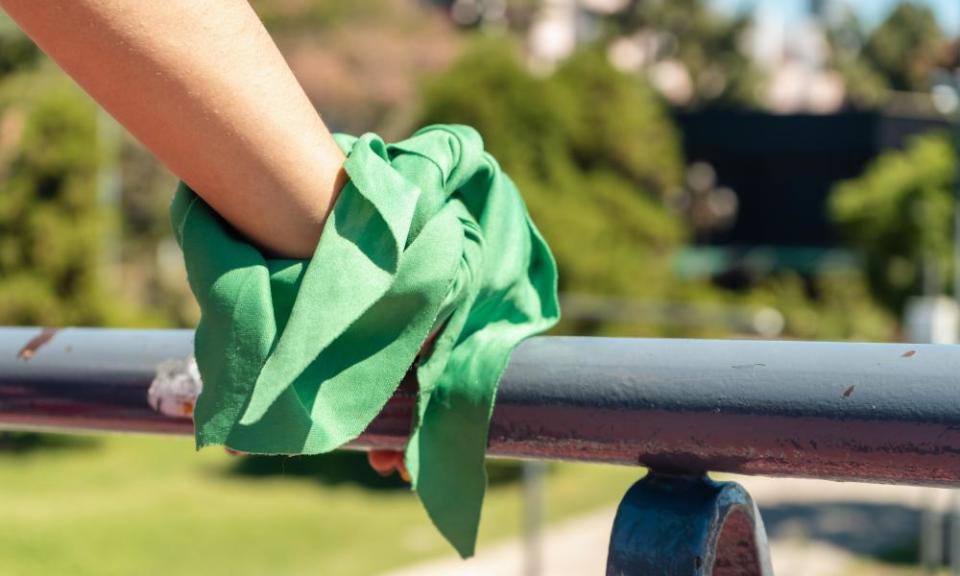‘These are not crimes’: women in Argentina facing jail for obstetric emergencies

One morning in December 2020, La China* was overcome with abdominal cramps. She has polycystic ovary syndrome and has often suffered severe pain and irregular, heavy periods. The condition was a reason why she hadn’t realised she was pregnant until after eight months with her first child, and until after six months with the second.
That morning, in intense pain, the 43-year-old Venezuelan, who lives in the Argentine capital, Buenos Aires, took some painkillers and went to bed. But she began bleeding profusely. What happened next is disputed.
La China says she gathered up what she thought were large clots of blood on her bedsheets into a bag, which she threw into a bin near her house.
The police, who arrested her a few days later, say she gave birth to a baby at 39 weeks’ gestation, after the body was discovered and reported by someone collecting cardboard for recycling.
It requires extra effort to listen to women and find out what really happened. Why isn’t that effort being made?
Natalia Saralegui Ferrante, University of Buenos Aires
La China is now on trial for killing her baby. If convicted, she faces life in prison. “Every time I hear what they’re accusing me of, I think ‘that’s not me’,” she told a panel of three judges last month. “I don’t feel as if I killed anyone. I have a health issue.”
Her story is part of what activists, lawyers, and doctors say is the continued criminalisation of women who suffer obstetric emergencies in Argentina, despite the liberalisation of abortion laws in recent years.
In 2020 the country legalised abortion up to 14 weeks, and later in circumstances such as rape or of health risk to the mother. The government also promised to drop charges against women being prosecuted under earlier abortion laws. A 2020 study found that more than 1,500 women had been accused of or charged for having terminations between 2012 and 2020.
But the new freedoms have not extended to women charged with homicide for undergoing what lawyers and supporters claim are actually miscarriages, stillbirths, or other complications. The same study found at least 37 women had faced charges – either for homicide, or abandonment of a person – for possible obstetric events. The Centre of Legal and Social Studies (CELS) in Buenos Aires said poor, migrant women are more likely to face prosecution.

Natalia Saralegui Ferrante, a law professor at the University of Buenos Aires, says she knows of at least six other women who, like La China, are imprisoned or awaiting trial for obstetric emergencies in Argentina – three of the women are serving life sentences for homicide.
“These seven stories we know about are surely not the only ones,” says Ferrante. “It’s very grave that there are women in jail for acts that are not crimes.”
Human rights groupshave begun travelling around the country, visiting jails and advocates to identify other cases and offer legal support to women.
Society needs to understand that everybody goes through a pregnancy and maternity differently
Rosana Fanjul, Libres las Queremos commission
La China’s husband contacted Ferrante after seeing the book she had co-authored about imprisoned women, called Dicen Que Tuve Un Bebé (They Say I Had a Baby). Ferrante says she regularly hears from people seeking help.
“We are talking about women who are being arbitrarily detained in our country because they lived through births and abortions that are outside the conventional narratives,” she says. It requires extra effort to listen to women and find out what really happened. My question is why is that extra effort not being made?”
Soledad Deza, a lawyer in Tucumán province, has been involved in numerous cases where women have been prosecuted for obstetric emergencies, including a 30-year-old who was recently acquitted of murder after spending nine months on remand.
Related: ‘It’s crazy’: the doctor who faces jail in Argentina for giving a legal abortion
“These stories happen, that’s why we have to raise the alarm about them, and we have to train more feminist lawyers,” she says.
“This keeps happening because the more conservative sectors of society are deeply rooted in the judicial system,” says Rosana Fanjul, a member of the Libres las Queremos commission, part of the campaign for legal abortion. “Society needs to understand that everybody goes through a pregnancy and maternity differently.”
After two years on remand, La China was released from jail last week and placed under house arrest for the rest of the trial, which is expected to end in mid-December.
“I want people to wake up and realise that there are a lot of women who don’t realise that they are pregnant. I’m not the only one,” La China wrote in a letter read out to the court. “We’re innocent.”
* Name has been changed

 Yahoo Movies
Yahoo Movies 
